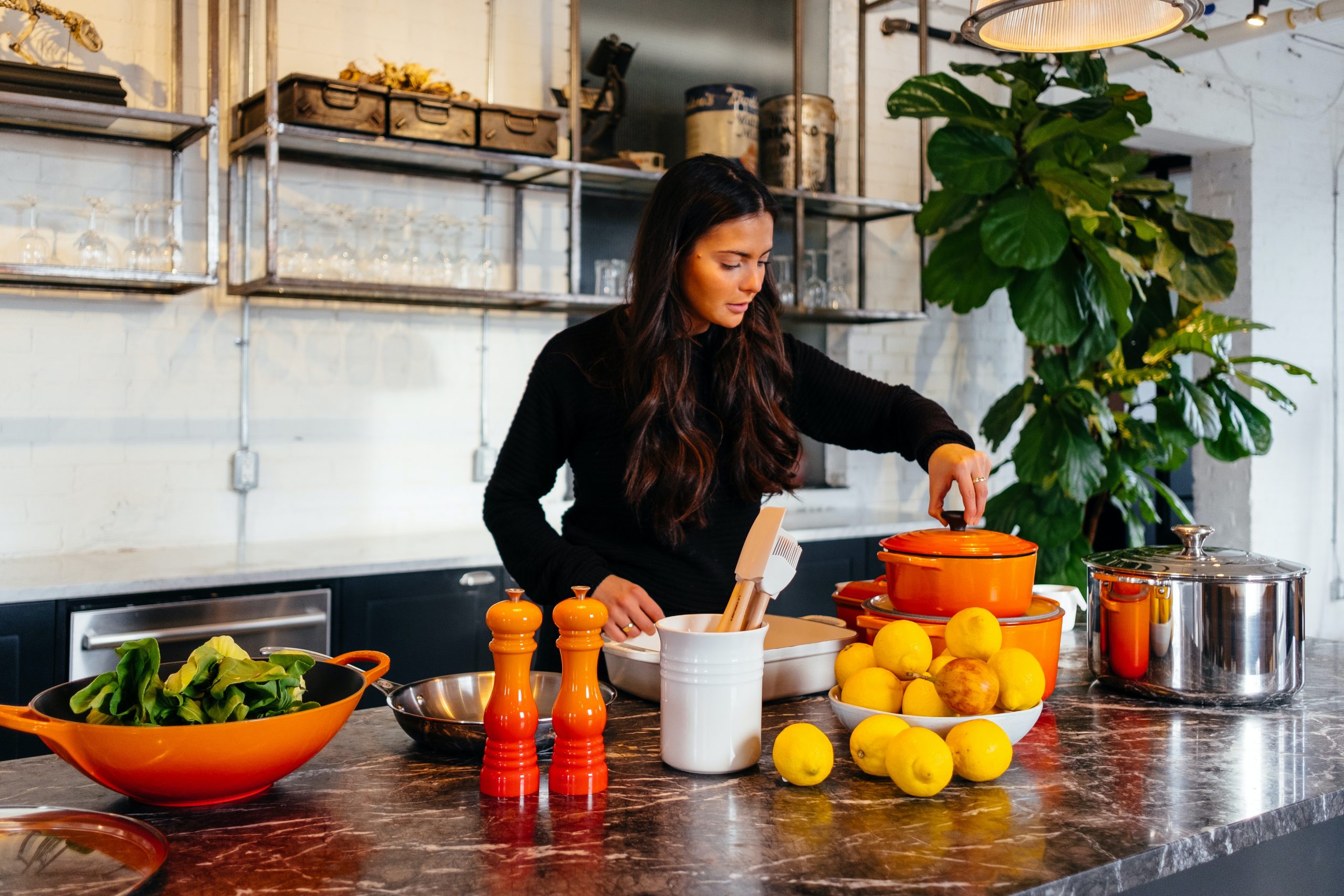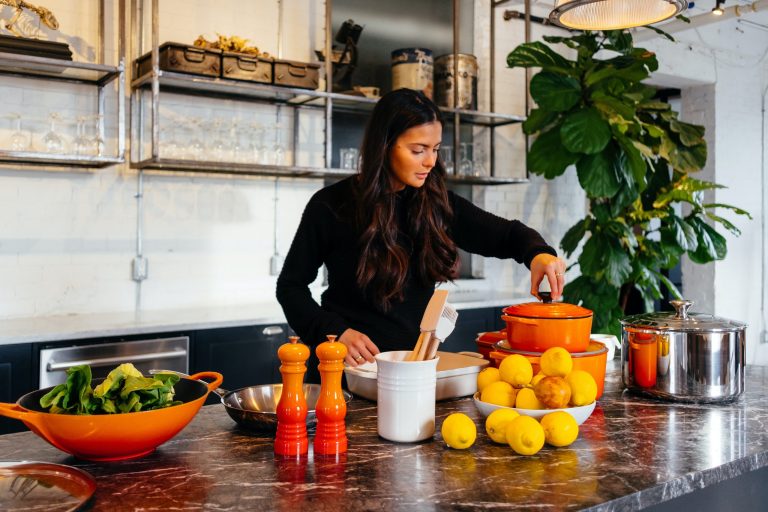Become Plant-Based? Any proper nutrition plan can be healthy. With this in mind, wouldn’t it be great to maximize your physical and mental well-being while creating a more sustainable future? Around 70% of people who try to go plant-based end up quitting. To avoid that, you need to know WHAT you are doing. WHY you’re doing it. And WHOM you’re doing it for. In this post, we’ll share with you a practical guide to what it takes to turn plant-based
Listen to the Blog
Education to Become Plant-Based
Knowing what you are doing is crucial. It concerns everything in life and is one of the key things when turning plant-based. A plant-based diet is different, but not as different when you learn more about it. You are dealing with the exact same macro- and micro-nutrients, just in different proportions.
It is possible to get all the needed nutrients from plants, but most people who follow a plant-based diet need to supplement vitamin B12 and Omega-3, which most people, regardless of their diet, would benefit from. Many people don’t know that most animal products’ vitamins, minerals, and essential amino acids are actually derived from plants.
For example, calcium coming from milk is one famous misconception. Let us explain why. Grass is not only the main food of cows but also one of the most significant sources of calcium. So when cows consume grass, calcium gets transported through their bloodstream into their milk, where it is stored. This is just one example of why it is important to deeply understand what you need to consume and how much.
To learn more, we recommend you read peer-reviewed articles and science-based books. “The Plant-Based Athlete” or “How Not to Die” for example, are easy-to-start books that will help you learn all the basics. The “Daily Dozen” app, on the other hand, can help you understand how to plan your daily meals and ensure that you get all the nutrients.
In addition to educating yourself on nutrition, it is also good to learn more about your body. Before starting your plant-based journey, it is good to take a blood test and regularly check it while adapting to your new diet. Doing this ensures that your body starts absorbing the new nutrients as it should and will help you know what to supplement.
Awareness of Becoming Plant-Based
Now that you know about the power & benefits of plants, it’s time to gain more awareness. This played a massive role in our transition, as it made us understand the bigger perspective: how our actions affect the planet, the other beings we share it with, and the future of society. There are some great documentaries that go deeper into these topics.
When it comes to the planet and environment, we highly recommend you watch “Eating Our Way To Extinction” which explains the effects of the global animal agriculture industry on the environment. While to understand the environmental impact of the global fishing industry, you should watch “Seaspiracy.”
Then, let’s talk about animal welfare. There are several documentaries we advise you to watch, such as “Cowspiracy”, “Dominion” and “Milked”. They’re not easy views; truth be told, we couldn’t watch them in their entirety; it was just too much. But, it was important to gain that awareness. Shedding light on all these topics might cause you negative emotions, which is totally normal, and it’s part of the process. Pain can be the biggest catalyst to change, and a big “why” can go a long way.
Food Reassociation
As humans, we are stuck to our thinking patterns and behavior. This psychological driver enables us to recognize what is safe and unsafe. This is an innate evolutionary ability that our brain does for us automatically; however, it is not based on rational truths but purely on our experiences, beliefs, and attitudes.
Of course, sometimes these might be true, but when it comes to food, many of us have a preset assumption of what a perfect plate looks like and what it should include. As research and science are constantly developing, we need to adjust our thinking and behavior more rationally than ever, based on facts rather than experiences and beliefs.

Turning plant-based is very “unfamiliar” for many, as it changes how you perceive food, which is good. You must give yourself time to adapt and recognize these new associations and actively reflect on where the food on your plate is coming from. If you think about a poor animal being killed, processed, and packed just for you to have beef on your plate, that is not “lucrative” but rather disgusting if you really reflect on it.
Of course, it is easier to close the reality out of your consciousness and focus on detaching the “living aspect” away from the meat. But that is lying to yourself and tricking your brain. I challenge you to see the world through a lens of truth in everything, so why not do it with your eating habits and be honest about what you feed your precious mind and body with?
Be honest about what you base your assumptions and opinions on and what is just ”inaccurate.” Maybe a new model could be beneficial.
Seek Guidance to Become Plant-Based
At this point, following a properly structured nutrition plan will not feel like a hassle or restriction. On the contrary, it will feel empowering. It truly is liberating to get all the energy you need only from plants. So you have two choices: do it yourself, or seek guidance. Our advice is, to start with a coach, and once you’re all set and know what to do, continue on your own.
By hiring a nutritionist you will have 100% certainty that your plan is balanced, contains all the nutrients, and it’s perfectly tailored for you. Also, you’ll get tips & tricks about recipes, understand what to eat, when to eat, and much more. Also, we’d say it’s important you choose a plant-based nutritionist. Of course, every certified nutritionist can create a balanced plan for you, but you will learn much more from someone who walks the talk.

Just find the right professional for your needs, and in general, it will be one of the best investments you can make for your health, as all the things you learn will serve you all your life.
Importance of Community & Inspiration
As a vegan, it is not always easy; people think they know everything about why veganism is bad, why plant-based is not good, etc., without having any valid facts behind their statements, opinions, and strong associations. However, having a higher awareness and knowing what you know will help you.
That’s why education is extra important. It will help you know more, deal with other people’s judgments, and stand for your point. But in the end, it doesn’t matter what other people think as long as you feel aligned. But it can be lonely at times. To help with this, there are a lot of outstanding Instagram accounts, Facebook groups, and online gatherings regarding plant-based lifestyles, which is a great way to feel more connected to the plant-based community and feel a sense of being part of a bigger mission.
Many athletes, doctors, and other professionals share their journeys publicly. There are also pages supporting animal rights and sharing environmental impacts caused by food consumption. We highly recommend you check out the pages linked in the end of this post! If you need any help or support to make this switch, we are open to discuss it with you!
We hope our guide will help you make a smooth transition to a sustainable plant-based lifestyle! Remember, the bigger meaning you associate with the change you want to implement in your life, the easier it will be to actually do it. If you truly want it, change is possible. Your individual actions might seem like a small drop in the ocean, but no matter how small your contribution is, it still counts, and it matters.
If you’re curious to learn more about us and are ready to go Beyond Sapiens, you can read more about our Business & Individual Maximization Coaching programs!
Links
📚 Recommended Books & App:
The Plant-Based Athlete → https://amzn.to/3QhNScC
How Not to Die → https://amzn.to/3ImOQ5p
Daily Dozen → https://apps.apple.com/us/app/dr-gregers-daily-dozen/id1060700802
https://play.google.com/store/apps/details?id=org.nutritionfacts.dailydozen&hl=en&gl=US&pli=1
🧑🎓 Doctors, Nutritionists, and Researchers:
https://www.instagram.com/nutrition_facts_org/
https://www.instagram.com/dr.matthewnagra/
https://www.instagram.com/doctorklaper/
https://www.instagram.com/plantingnutrition/
✨ Plant-Based Community:
https://www.instagram.com/plantbasednews/
https://www.instagram.com/genv_eng/
🌱 Help Going vegan:
https://www.vegansociety.com/go-vegan/veguide
🌮 Cooking/Recipes Accounts:
https://www.instagram.com/fitgreenmind/
https://www.instagram.com/plantyou/
https://www.instagram.com/veganbowls/
https://www.instagram.com/forksoverknives/
https://www.instagram.com/that.veganbabe/
https://www.instagram.com/plantd.co/
https://www.instagram.com/fitveganchef/
https://www.instagram.com/best.plantbased.recipe/
https://www.instagram.com/davidclearyveganpt/
https://www.instagram.com/nathalie.vegan/
🐮 Animal Rights:
https://www.instagram.com/_menkay_/
https://www.instagram.com/ryujichua/
https://www.instagram.com/justveganfacts/
https://www.instagram.com/thesavemovement/
https://www.instagram.com/mercyforanimals/
https://www.instagram.com/joey_carbstrong/
🕊 Animal Sanctuaries:
https://www.instagram.com/edgarsmission/
https://www.instagram.com/sisurefuge/
https://www.instagram.com/friendlyfieldsfarm/
https://www.instagram.com/thegentlebarn/
🌏 Environment:
https://www.instagram.com/seaspiracy/
🤸♀️ Athletes:
https://www.instagram.com/patrikbaboumian/






